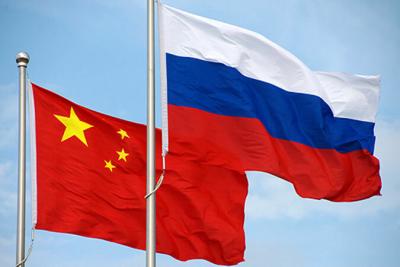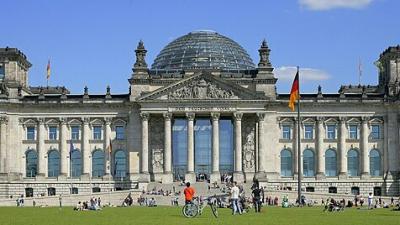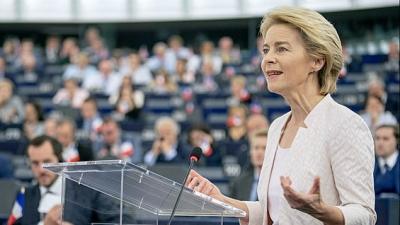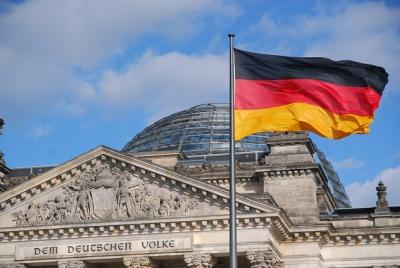How the uprising of Wagner Group leader Yevgeny Prigozhin must be evaluated is a chapter in itself. On the day of the alleged mutiny, events rolled over so quickly that one hardly noticed who did not speak out. While Putin was on the phone with Kazakhstan and Turkey, and the Belarusian Security Council as well as Iran reacted quickly, it was noticeable that one of the Russians' partners remained silent: namely, the People's Republic of China.
It was only 36 hours after the precipitating incidents in the former Soviet empire that the spokesperson for the Chinese Foreign Ministry, Mao Ning, spoke out in her daily press conference. She stressed that "the incident with the Wagner Group is Moscow’s internal matter". Mao also reminded that "China, as a friendly neighbour and comprehensive strategic coordination partner, supports and believes in Russia's ability to maintain national stability and achieve development and prosperity in the new era". Yet on the previous Saturday, while the 20,000 mercenaries were still marching towards Moscow, a meeting took place between the Chinese government and Russian diplomats, and the day after it Xi Jinping's emissaries reaffirmed their confidence in Putin.
The Italian daily Libero suggested the "geopolitical factor" was the downward revision of China's GDP growth estimates for 2023, which fell to 5.2 per cent from the previously estimated 5.5 per cent according to Standard&Poor. "The main growth risk for China," a statement from the rating agency said, "is that the recovery will increasingly lose momentum due to weak consumption and consumer spending and a non-recovering property market." The newspaper pointed out that according to the Xinhua news agency on the day of Prigozhin’s move Xi was corresponding with a Belgian zoo director on the health of pandas.
Apparently, the dragon's radio silence in the situation is to be presented in retrospect as complete trust in the Putin government. Yet a public declaration of loyalty at the zenith of the crisis would have had a much clearer effect. Thus, Beijing appears more in the role of a wait-and-see observer that does not recognise Russia as a close partner either, as the People's Republic usually claims. The case therefore sheds a significant light on the relationship between the two powers.
For even before that, there had always been doubts about how strong the bond between Moscow and Beijing is. There is no question that the geopolitical circumstances have welded the regimes together since the 2000s. Since the Crimea crisis in 2014 and the boycott by the important European market, Russia has found itself increasingly at the mercy of China. Vladimir Putin had originally taken pro-European positions with his idea of a market from Lisbon to Vladivostok, knowing fully well that the pressure on Siberia would increase rather than decrease in the following decades.
With regard to the East Siberian possessions, it should be said that the pressure feared by the Russians has tended to decrease in recent years. The special zones designated by the Russian government have only in certain cases turned into the successful project that had been originally envisaged. As of 2021, only 6 of the 20 zones had attracted the interest of Chinese investors. The number of Chinese on the Russian side had reached a low of only 70,000 people.
At the same time, this should not obscure the fact that the People's Republic has a good historical memory for humiliations. Besides the destruction of the Summer Palace by the British and the French, the annexation of East Manchuria still plays a role as an expression of the "Unequal Treaties". The fact that the Chinese state broadcaster CGTN recalled on the 160th anniversary of Vladivostok's founding in 2020 that the city "used to be Hǎishēnwǎi, Chinese land - before Russia annexed it" has so far been regarded by some as an insignificant footnote, but shows a much more differentiated relationship with the neighbour than is generally thought.
On the Russian side, there are several reservations. The fear of becoming dependent on the economically, demographically and militarily far superior neighbour should not be underestimated. However, the break with the European markets from 2014 onwards made a turn towards the East inevitable. In the process, Russian hopes were also disappointed. In the gas deal, the Russians felt cheated, as the Chinese had invested much less in infrastructure and gas production in Siberia than they had hoped. The accusations of industrial espionage and piracy repeatedly levelled against China by the European side are mirrored by the Russians. In 2019, the Russian technology group Rostec accused the People's Republic of stealing modern military technologies.
Russia's weakness in Ukraine and the Prigozhin incident are therefore symptomatic of the friendly coolness that underlies the undeclared alliance. On the one hand, China is unlikely to be interested in too much weakness on the part of the Russians, should a pro-Western coup result. Nor is Beijing likely to want disintegration of the giant empire with unrest on its own borders. Rather, the red mandarins are likely to be interested in increasing their shadow rule, primarily through economic measures - Russia as an outlet for Chinese products, selling out of necessity its resources to the Middle Kingdom - possibly even at a loss, if no other buyer can be found.
David Boos summed up this situation in the Tichys Einblick magazine as follows: "China was never Russia’s desired partner, but it was the only partner that considered cooperation with that country opportune for a long time. Because if Russia wears itself out in Ukraine, together with NATO, this will only play into China's hands. A weakened West is an easier 'negotiating partner', as they say in China. Similarly, a weakened Russia would only solidify the hierarchy between junior/senior partners in the cooperation with China."
The Sino-Russian question is therefore no mere exercise in geopolitical tactic for the evening fireside. Rather, the Beijing-Moscow axis holds inherent problems crucial for Europe's situation. For Europe, China is already more than a mere trading partner. The Chinese purchase of critical infrastructure has been an explosive issue for several years. The hope, I suppose, is that Europe, like Russia, will wear itself out until it falls as a rotten fruit into the Chinese shopping basket.
Read also
Country report: Germany, July - How the German government tried to undermine parliament
The traffic light government consisting of Social Democrats, Greens and Liberals had wanted to push the "heat turnaround" through the German parliament by brute force.
Marco Gallina
The nuclear phase-out: The Germans' dogma
Europe is an officially secularised continent. Christianity is seen either as folklore or a disturbing relic. Significantly, the 19th century transformed Western societies in several ways.
Marco Gallina
The Leyen Question
How firmly is EU Commission President Ursula von der Leyen in the saddle? If one follows official accounts, then everything speaks in favour of the German seeking a second term in office and having broad support for it.
Marco Gallina
Country Report: Germany, June 2023: The “Ampel”-Coalition wants the heat pump at any price - and is causing political instability
The German government is increasingly slipping the reins. For months it has been arguing about its latest project: the "heat turnaround" (“Heizungswende”). The project is modelled on the “energy turnaround” (“Energiewende”) that forced Germany to phase-out of nuclear power and scooped up "renewable energies" with the watering-can principle.














Comments (0)